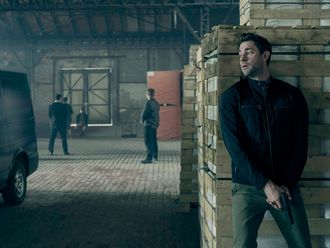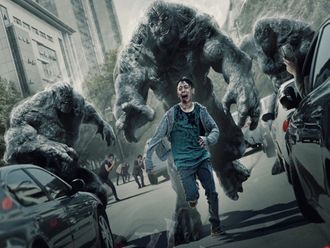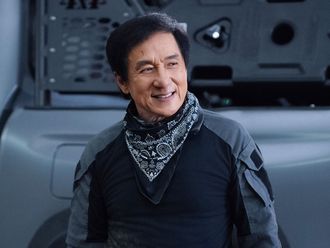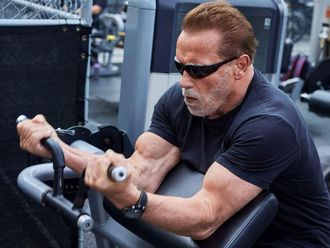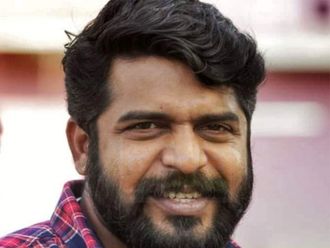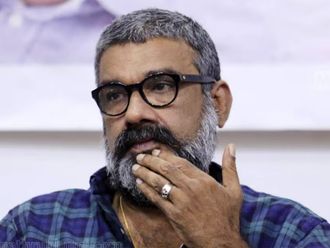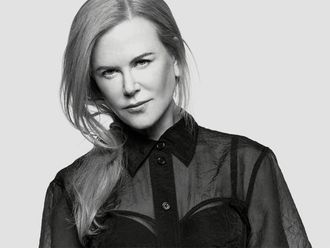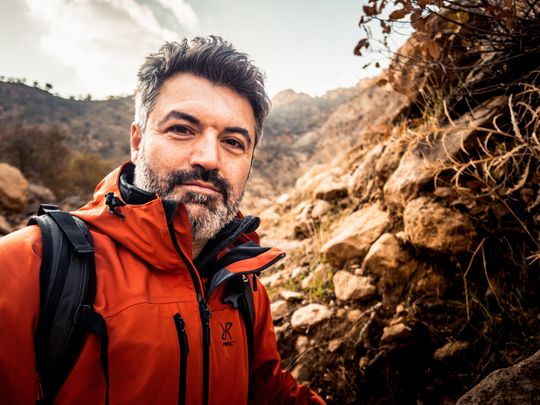
British explorer and filmmaker Reza Pakravan, who holds the Guinness World Record for the fastest crossing of the Sahara desert by bicycle in 13 days, 5 hours, 50 minutes and 14 seconds, has found a new target: The Arabian Peninsula.
But Iranian-born daredevil Pakravan began questioning his decision to spearhead the series, ‘Hidden Frontiers: Arabia’, out on Discovery Channel now when he was stuck in a deep canyon in Oman.
“We rappelled into this deep canyon in Oman and were about 400 metres down. We had run out of water … But we were saved by inhabitants of that canyon. These are people who have lived off the grid for generations,” said Pakravan in an interview with Gulf News. But such daring episodes — including being lost in a cave in Oman with batteries of his head-torch running out — don’t faze Pakravan, whose aim is to explore the remotest and uncharted corners of the globe.
“Your mind has to be trained to deal with such uncertainties. You need to get to a point where you are most comfortable in uncomfortable situations. I have put myself in so many uncomfortable situations that I am very happy when things get unpredictable,” said Pakravan.
The former banker, who took the money he saved from his staid corporate job to enrol in a film school for a dramatic career switch, has no regrets.
In his latest show, Pakravan has ventured into Oman, Iran, Bahrain, and Saudi Arabia’s desert.
“Many people associate the Arabian Peninsula with Dubai alone, but if you go inland, you find remote corners of this incredible place that are unexplored. We found such places in Oman. We also found extinct species of animals in Iraq and found caves in Oman where not a single human has ever been inside them. And hence, we build this expedition and the show around the Arabian Peninsula,” said Pakravan.
Excerpts from our interview with the iconic explorer on his new show, the biggest challenges, and more:
What about the “Hidden Frontiers: Arabia” show fascinated you?
I’m an explorer and filmmaker who makes series and television programmes about places that are remote and inaccessible. We are the people who live in a faraway land. So how does Arabian Peninsula fit into all of this? The whole story started a few years ago when we realised that Saudi Arabia has been closed off to the outside world for the last century. And, since it has opened its doors now, it has become a frontline for exploration and discoveries. There are still canyons and caves in Saudi Arabia that have not been discovered and this is great news for explorers. We found an unexplored Canyon in Northwest Saudi Arabia and felt it’s not enough, needing to know more. As we looked closer and closer, we just realised that the Arabian Peninsula in the Middle East is completely overlooked.
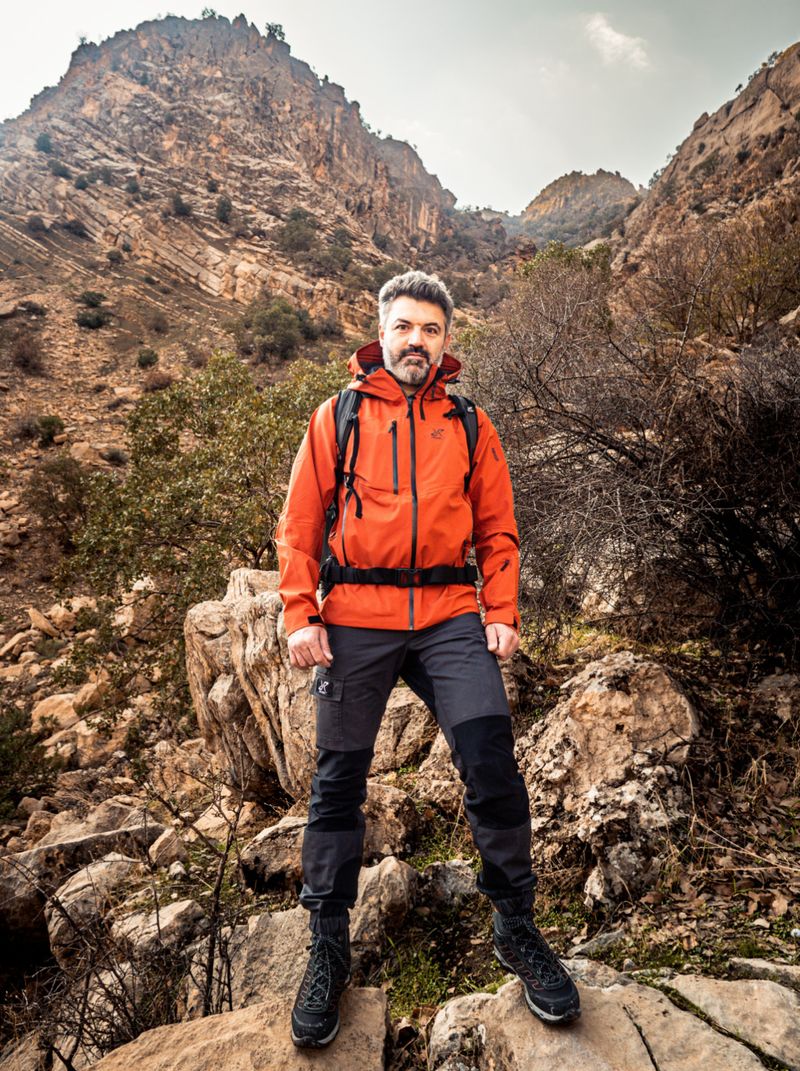
What about the Arabian Peninsula surprised you?
The places that are normally filmed are either in the Arctic or in the middle of the Rainforest or inaccessible places in far-flung corners of the planet. But I live in London, and within a few hours, I am setting off to explore this vast expanse of deserts in a mountainous area. They are remote, inaccessible, and so astonishingly beautiful. We all associate the Arabian Peninsula with being a complete desert, but I found beautiful mountains and high-altitude canyons. In Oman, their canyons are up to a kilometre in depth. In Saudi Arabia, we found snow on top of the mountains and these were just the natural surprises. The hospitality on the ground and meeting strangers who go out of their way to help you made it an incredible experience.
What was the legwork involved for this exploration?
We had 18 months of preparation and work, once we locked in our missions. We had six distinct missions and each of them required a certain amount of preparation. For example, when you want to go to an unexplored Canyon in Saudi Arabia in which the walls are crumbling, you find the best riggers in the world along with the best climbers to rig the canyon. They find a way for you to go inside. Remember, it’s unexplored for a reason because it’s not easy to get into it. We had to come up with special devices and proper structure. There was a lot of risk assessment, reconnaissance, and preparation to get inside. On top of that, you need to learn the craft where you have to understand how to tackle a complete unknown quantity. For example, the ropes and devices are all designed for a 200-metre drop into a canyon and there was no rappelling device that was designed to cope beyond 200 metres, so we had to order a special rope that could cope with 400 metres and come up with devices that could sustain the load of equipment for a 400-metre drop. This is a simple one … The episodes where we captured the underwater species by deep-sea diving, I had to become a deep-sea diving expert. We often wake up in the middle of the night and wonder how the next day is going to go.
Any anecdotes that you can share from this expedition …
As a filmmaker and explorer, I create stories that change people’s understanding of the world that we live in. I would love to show people aspects of life that they don’t know anything about. For example, when we rappelled into this deep canyon in Oman and were about 400 metres down, we ran out of water. But we were saved by an inhabitant of that canyon. There are people that live off the grid for generations. They were shocked to see us because they are living in this sustainable, isolated form of civilisation with a few goats and chickens. They could find a water source for us. They remain cave people till this day. I asked them when the last time they saw someone outside of this canyon was and they told me about a military helicopter that came to survey their place around 10 years ago. They just dropped and picked some people. So imagine, for the last 10 years, they haven’t seen anyone from the outside world.
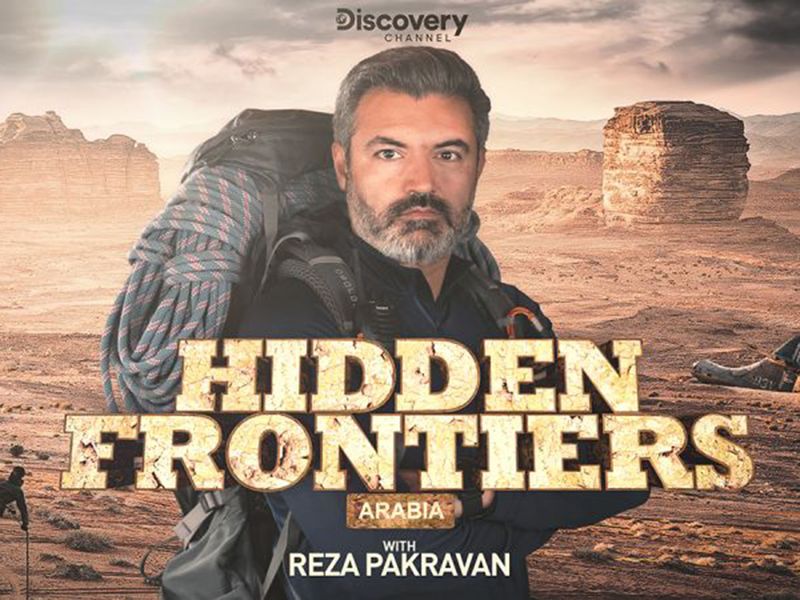
Do you face resistance while filming people who live off the grid?
I have filmed a lot of indigenous people around the world — from deep in the Amazon, to the Arctic, to the tribes in the Pacific. My motto, whenever I meet such people, is to be very respectful of their privacy. We put the camera away straightaway and try to establish trust and a bond. Once that trust is established, we ask their permission to showcase their lives. If they say no, we just walk away. They don’t see us as a threat.
You seem to love skirting danger for a living … Does that excite you and is that why you do this?
I don’t necessarily do this because I chase adrenaline and danger. But the fact remains that our day-to-day lives are predictable. You know where you are going to get your coffee in the morning or the route that you take to work or how your bills are paid or when your salary lands. This sort of mundane predictability is not for me. I get the thrill from being in those places where I can zip up my tent or wake up to get a ray of sun inside a tent wondering what today is going to bring me or what mountain I am going to climb. I want to wonder if I am going to be safe today when I am 80 metres into a cave. While we try to minimise the danger as much as you can, there’s always a residual risk and that’s exciting.
Did you ever have regrets while filming 'Hidden Frontiers: Arabia'?
Three or four times … Once we were in this subterranean netherworld in Oman and we got lost in this cave. Imagine you’re knee-deep in water with your head torch and you run out of batteries. You try to keep going but you are not sure where you are heading and you lost 50 metres below the ground, with just gravel and rocks above your head. This ancient structure can fall and we could die and that was the time when you wonder what I am doing with my life and why am I doing this. Fortunately, things worked. Like toss of a coin, we took the right fork in the road and got out in one piece.
How did you cope during Covid lockdown when your wings were clipped?
My son was born during Covid, and I became a dad all of a sudden. So when this kid was on your lap, it’s a survival of sorts. Parenting is harder than being out there in a desert or a mountain or in the Arctic. Without having much sleep, you wonder how you are going to get through your day. Parenting was an expedition in its own right … When the lockdown eased, I did a fair amount of travelling to places like Bolivia where I had to isolate in a hotel for a few days after landing there.
What’s your advice to all those who wish to pursue a career in exploration?
Just go and do it. Don’t talk about it. You will figure out a way. Want to make a film? Go to a film school and start there. Want to be an explorer? I started with some weekend cycling, a bit of camping and now I am able to go to the most remote and dangerous locations in the world. Preparation is everything.
Don’t Miss It!
‘Hidden Frontiers: Arabia’ is out on Discovery Channel and Discovery + now. The first two episodes are out now


